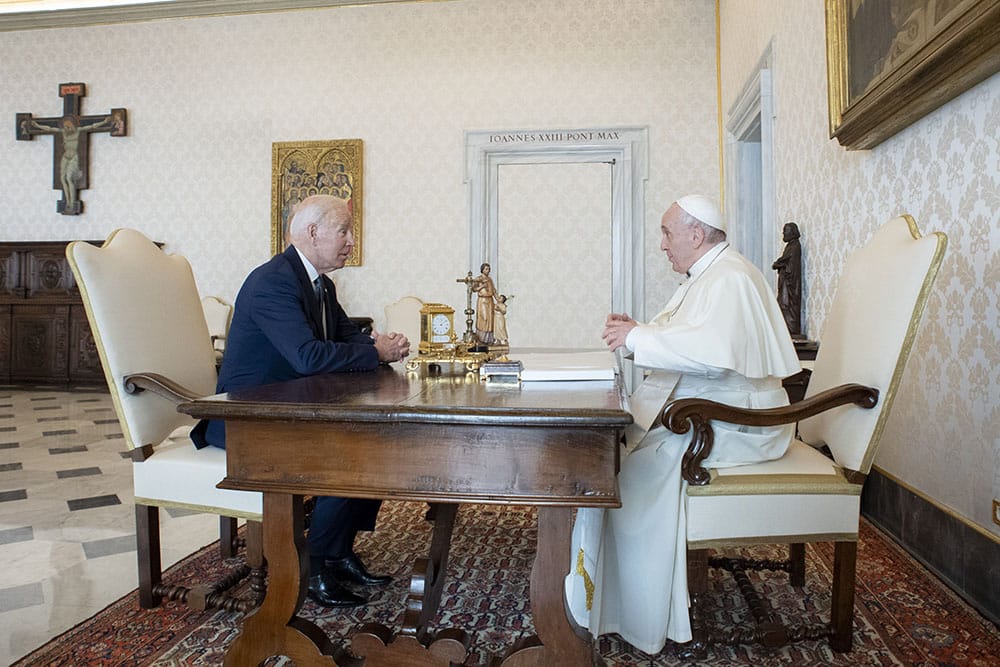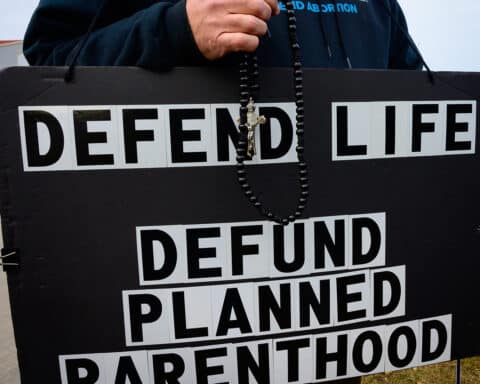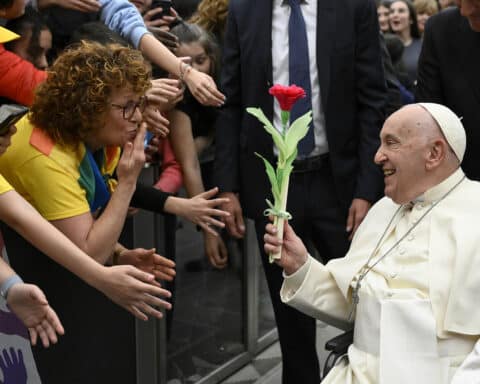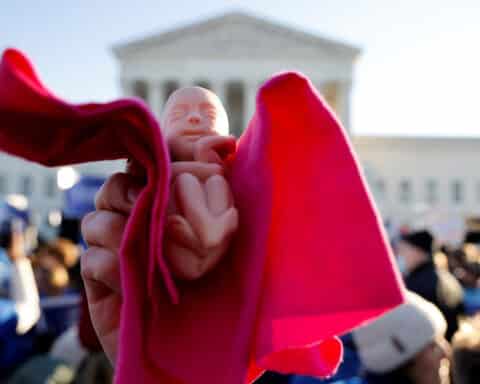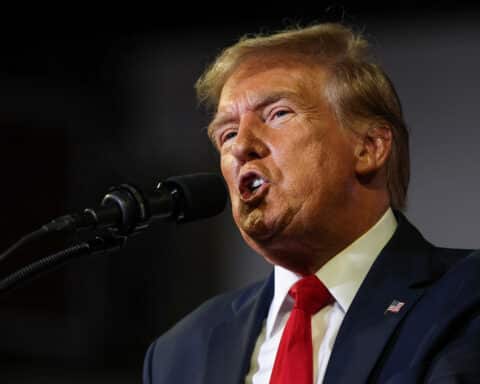Many, many American Catholics got very upset with Pope Francis for not publicly criticizing President Joe Biden when they met at the Vatican last week. No one, as far as I know, has asked a crucial question: Why does anyone care about the meeting? And why do some people care so much?
The answer seems obvious. One of these men leads the Catholic Church and the other leads the United States. One is the pastor of a billion-some people, the other the president of 335 million and commander in chief of the world’s biggest military. Between them, they can do a lot of good or a lot of damage, or both. The second is also under the authority of the first.
The answer seems obvious, but it’s not. The meeting is a diplomatic one, not a pastoral one. The two talk about the world and try to influence the other. It’s not likely to do anything. Meeting heads of state is one of the things a pope does, being a head of state himself and having people in nearly every nation in the world.
Pope St. John Paul II met with Biden when he was just a senator and spent 45 minutes talking with him. Pope Benedict XVI met with Biden in 2011 when he was only vice-president. (Time reported that “Biden’s conservative critics will be disappointed that the pope did not choose to publicly remind Biden of the Church’s opposition to abortion.”) Pope Francis met with Donald Trump, himself as distant from Catholic teaching in some ways as Biden is in others.
The pope has a better chance to help the world’s Catholics if he has a personal relationship with their political leaders. He also has a better chance of getting those leaders to act more in conformity with Catholic social teaching if he speaks to them directly. Not much of a chance, politics being politics, but a better one.
Many American Catholics care so much for one reason, I think. Because they want the pope to take their side in one single matter. To take it again, that is, because Pope Francis has made his teaching clear over and over and over. But this time, many American Catholics wanted him to make it in the most overt political manner possible. They particularly wanted Francis to tell Biden not to take Communion — that is, to publicly excommunicate him.
It isn’t as if the pope hasn’t made his commitment to the life of the unborn clear. He’s said as much about it and as often as any ardent pro-lifer could wish. Just two days before the meeting with the president, Pope Francis blessed two bells named the “Voice of the Unborn” that were to be sent to Ukraine and Ecuador. “They are a sign of commitment in favor of the defense of human life from conception to natural death,” he said. “May their sound announce the ‘Gospel of life’ to the world, awaken the consciences of men, and be a reminder of the unborn. I entrust to your prayer every conceived child whose life is sacred and inviolable.”
Too many Catholics wanted, to borrow a term from the scholars, a performative denunciation. They want to see it done, even if it does nothing. They call it a witness, but it would really be just a scolding.
Worse, some of those who wanted the pope to smack Biden down over abortion really just wanted to see Biden smacked down. They assigned the pope a role in their own political drama and got angry because they think he blew his lines. They’ve blurred the lines between Catholic teaching on human life and their own positions on partisan and prudential matters.
What would be the point of publicly criticizing Biden? Everyone, including Joe Biden, knows the Church’s teaching on the inviolable dignity of unborn human life. Everyone knows Francis teaches it. Biden decided to reject it, and other Church teachings as well. That’s the state of play, and Pope Francis apparently decided to do what he could in other matters.
Other very important matters of the sort a pope should talk to a political leader about. His critics said he should have reprimanded Biden as a pastor, but a wise pastor exercises that calling in different ways in different circumstances. Francis begins with what he has in common with the person he’s dealing with, often setting aside the matters on which they differ. It’s a high-wire act but one that can do good, when starting with the disagreements won’t.
Abortion is “pre-eminent,” as the American bishops put it. But it’s not the only issue, as I explained before the last election. The belief in human dignity focused on the unborn child’s right to live plays out in other issues that the Church necessarily addresses as matters of human dignity. The pope talked with the president about “the protection and care of the planet,” refugees and migrants, health care and “the protection of human rights, including freedom of religion and conscience.”
I would have liked Pope Francis to have mentioned the protection and care of the unborn, and maybe he did in the private meeting. He was doing what popes do with heads of state, even Catholic ones — that is, to do what good one can do and build a relationship that may let him do more good in the future. Even though, in this case, it’s unlikely to dissuade Biden from his staunch support of abortion.
David Mills writes from Pennsylvania.

